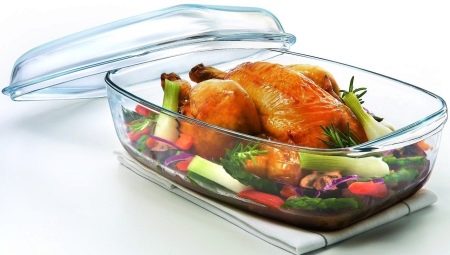There are currently a lot of ceramic and glass cooking utensils on the market. Glassware is not only beautiful, but also functional. Of course, we are talking about products made of heat-resistant glass. But the use of such equipment has its own nuances. We’ll talk about them.
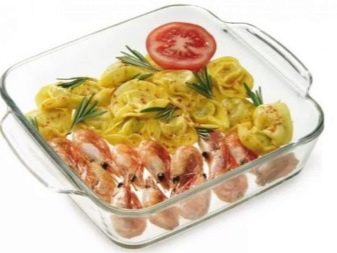
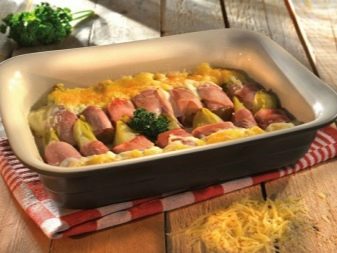
Varieties, Pros and Cons
Initially, glass dishes were used only for table decoration - dishes laid out in an aesthetic transparent salad bowl or dish look appetizing and beautiful. With the development of technology, the scope of glass products has expanded - now on sale you can find glass pans, cake tins and much more. Of course, for such kitchen utensils, various ingredients are added to the glass for strength and are specially tempered.
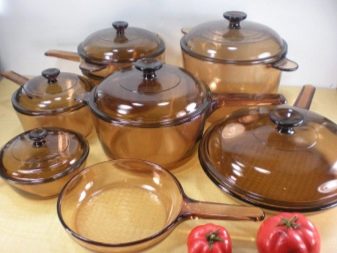
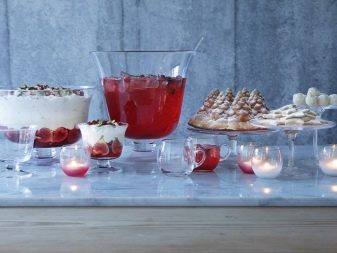
Such utensils have many advantages:
- glass is chemically inert and does not spoil the taste of the dish by oxidation and odors;
- kitchen appliances made of heat-resistant glass can withstand heat up to 300 degrees;
- the transparency of the walls facilitates the visual determination of the degree of readiness of food;
- it is not necessary to transfer the dish from the mold to another dish - you can cook and put it on the table right in it;
- good heat capacity of the material and wall thickness prevent quick cooling of food;
- ease of washing - to wash the utensils out of glass, it is enough to soak them briefly in water, and then wipe them with a soapy sponge and rinse;
- with proper use and careful handling, the dishes retain their original appearance for a long time.
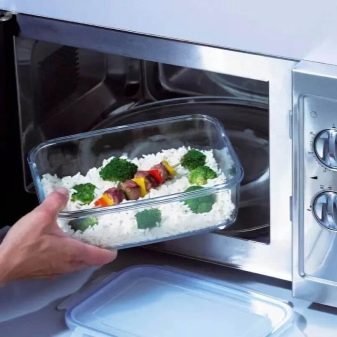
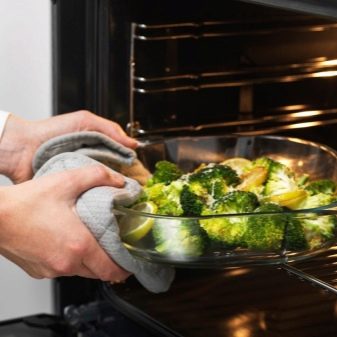
It should also be noted that food in glass forms burns less, and before cooking it does not need to be lubricated with oil, as you have to do with metal forms.
Baking sweet cakes in such utensils is simply a pleasure.
The main area of application is the preparation and heating of dishes in the microwave and oven. On an open fire, such a bowl may burst if you do not first install a fire divider to evenly heat the entire surface of the dishes.
The disadvantages include a couple of factors.
- Fragility of the material. Protect your equipment from falls, otherwise you risk losing it.
- It does not tolerate sharp temperature jumps. Therefore, if you decide to bake something in the oven using glassware, put it in a cold or slightly preheated oven.
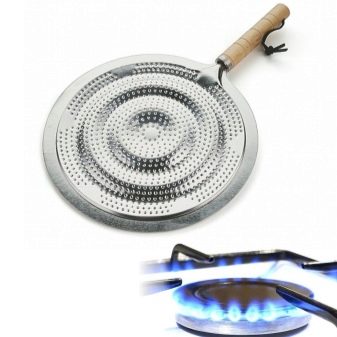
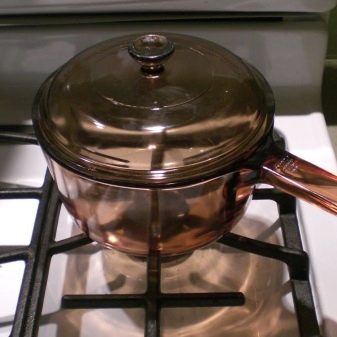
How to use?
Before buying glass baking dishes, be sure to find out if they are heat resistant. Typically, this information is printed on the label, including the maximum heating temperature.
Before using tempered glass molds for baking, pay attention to a few simple rules.
- Do not expose cookware to extreme temperature changes: do not put in a hot oven, do not cool with cold water. It is better to wait a bit and let it cool naturally, rather than throwing out cracked equipment.
- Do not allow wet objects or water to come in contact with the hot outer surface of glassware.
- Before installing the dishes in the oven, first place the baking tray / rack on which it will stand.
- Check the dryness of the utensil before installing it in the oven.
- Such utensils should be washed with a soapy soft sponge without the use of abrasives and metal brushes in order to prevent scratches.
For cooking, choose utensils with handles and a lid - it is more convenient than simple round and rectangular shapes.
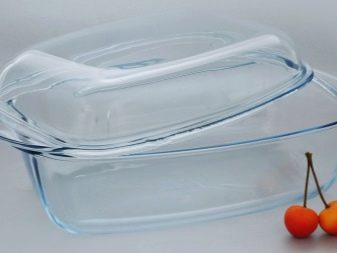
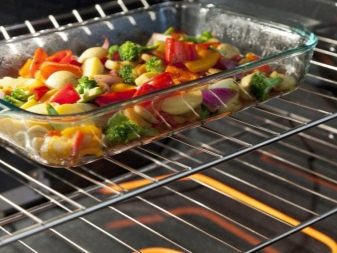
User reviews
The vast majority of consumers are pretty tempered glass kitchen utensils. Users note the beautiful appearance, functionality and ease of use of such equipment, the ability to withstand high temperatures and even cooking. Among the advantages also stand out affordability and variety of models - now a lot of companies produce such utensils. Consumers are also pleased with the ease with which it is possible to clean dishes from soot and food debris.
Among the disadvantages are the fact that dishes require careful handling - too fragile. Of course, in this glass utensils are much inferior to metal counterparts, but this is offset by the external attractiveness and the possibility of use for cooking in microwave ovens.
And also note the difficulties in cooking on an open fire - too strong a flame (without a divider) can lead to a split of heat-resistant material.
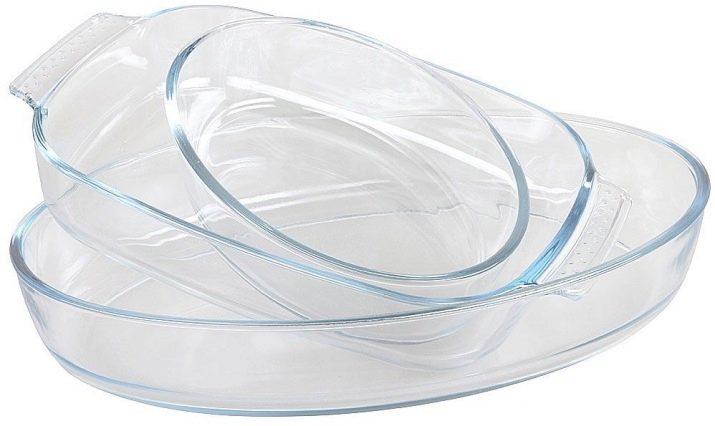
To summarize, we can conclude: if you use glassware carefully and wisely, it will serve you for many years.
Below you can watch a video with tips for selecting glass heat-resistant cookware.
